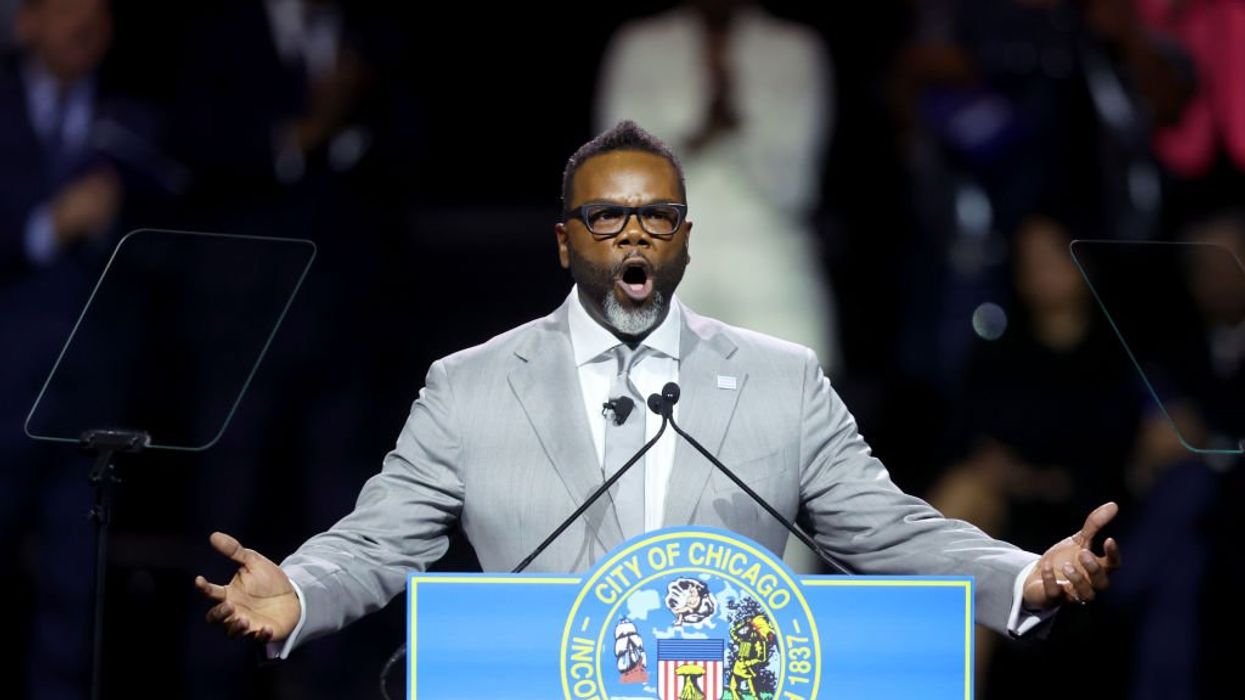
Photo by Scott Olson/Getty Images

The mayor of Chicago has defended infusing "predominately Black and Latino owned" businesses with millions of dollars to help feed illegal immigrants who have recently arrived there. He claims the race-based move represents "the soul" of the city.
Last week, Mayor Brandon Johnson issued a press release touting a new partnership between his office and "black and brown businesses" to help provide food for 10,000 or so "asylum-seeking new arrivals" — illegal immigrants who have been sent to the city from the southern border. For the past eight months, the mayor has worked with the Greater Chicago Food Depository and the state of Illinois to scrape together $17.6 million for the project.
"The $17 million investment for these 18 black and brown small businesses really captures what I call the soul of Chicago," Johnson said at a press conference to announce the partnership. "It's who we are."
"I actually think it's quite fitting that we are in this wonderful small business," he continued, "because it has been black and brown small businesses that have stepped up in this moment, in this crisis, to respond to these families who are arriving here."
John Meyer, chef and owner of BJ’s Market and Bakery, where Johnson held the press conference, claimed that his share of the race-based funding helped his business realize its full potential. "Being part of the new arrivals program has been like a new world to me," Meyer said. "For the first time in my 31 years in business, I've been able to run my restaurant as it's meant to be. I learned so much about myself, my team, and we all are better because of it."
The announcement from the mayor's office repeatedly drew attention to race as a central component of the partnership. It claimed that "the Food Depository convened a network of BIPOC restaurants and caterers to provide daily hot meals at an expanding number of shelters," a demonstration of the "shared commitment to continue investing in local minority-owned businesses."
The executive director and CEO of the Food Depository, Kate Maehr, also reiterated the important role that race played in the partnership. "Achieving our mission means we provide food for anyone who needs support today, while creating solutions to address the root causes of hunger – poverty, systemic inequity, and structural racism," her statement read in part.
When asked by a reporter when he intended to visit the southern border for himself, the mayor once again steered the conversation back to race. He claimed that in addition to addressing issues regarding the budget and "the unhoused," he was currently preoccupied attending to the needs of his black family members. "I’m doing all of that with a black wife, raising three black children" who have "schedules," he retorted.
"Do you not understand that you have not had a mayor like me?"
Like Blaze News? Bypass the censors, sign up for our newsletters, and get stories like this direct to your inbox. Sign up here!